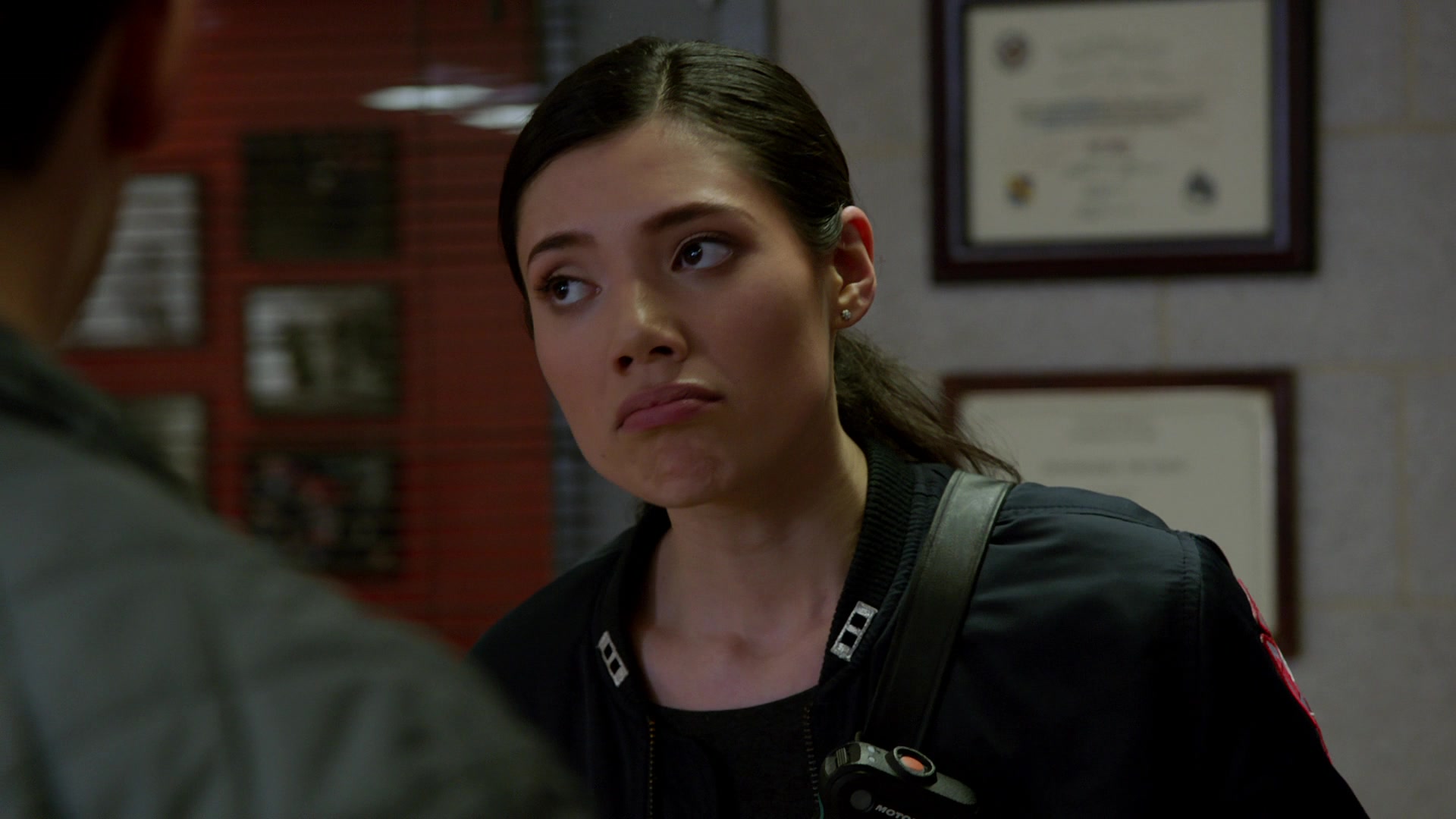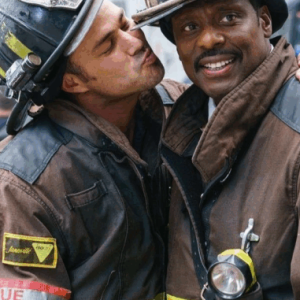In Chicago Fire, grief often gets pushed aside in favor of urgency—lives to save, fires to fight, gear to load back into the truck. But in the standout episode “All The Wrong Places,” Violet Mikami’s pain can no longer be tucked away. This is the moment where silence breaks, and her grief is given space to speak.
The episode is not loud. There’s no blazing inferno or high-speed accident. But it burns slowly, emotionally. And at the center is Violet, reeling from the loss of Chief Evan Hawkins—a man who changed her, challenged her, and then vanished from her life far too soon.

The Call That Opens a Wound
The episode begins with a fairly routine medical call—a young man with chest pain in an upscale apartment. Violet and her new partner handle it with practiced precision, but something about the scene throws her off. The surroundings, the calm voice of the caller, the uncertainty in the patient’s eyes—it all echoes the day she lost Hawkins.
She fumbles. Her hands tremble for just a second. She masks it well, but we see it.
When they return to Firehouse 51, Violet barely speaks. She avoids eye contact, declines lunch, busies herself with inventory checks. Gallo, who’s grown more aware of her emotional temperature, tries to check in. “You good?” he asks casually. She nods, but the look in her eyes says everything else.
“All The Wrong Places” is a perfect title—because Violet keeps looking for Hawkins in all the wrong places. In the rhythm of a medical emergency, in the hallways of the firehouse, in the empty cot across the room. She’s not just missing him—she’s looking for a piece of herself she lost when he died.
The Breaking Point
The emotional climax of the episode doesn’t happen during a call—it happens in the ambulance bay, late at night.
After a long shift, Violet sits alone in the rig. She looks down at her gloved hands. For a moment, her shoulders rise and fall, like she’s breathing against a weight she can’t name. Then she lets go.
She cries. Quietly, messily, without apology. And it’s one of the most honest moments Chicago Fire has ever given us.
Paramedic Chief Tomes approaches but doesn’t interrupt. She sees him, wipes her face, and stands. He simply says, “Take a walk before your next call. I’ve got it.” It’s not sympathy—it’s understanding. And it’s exactly what Violet needed.
Why This Episode Hits So Hard
Chicago Fire has always walked a fine line between adrenaline and emotion. “All The Wrong Places” leans all the way into the latter, and it’s a risk that pays off. What Violet experiences isn’t just grief—it’s delayed grief. It’s the kind of sorrow that creeps in only when the world finally slows down.
For weeks, Violet held herself together for the sake of professionalism, for her team, for the show’s forward momentum. But this episode forces her—and us—to pause.
Her interactions with Gallo in the final minutes are especially poignant. He doesn’t try to fix her. He doesn’t give a grand speech. He simply asks if she wants to grab dinner. She says yes. That’s it. Healing doesn’t always look like closure—it often looks like company.
A Quiet Performance With Loud Impact
Hanako Greensmith delivers what may be her strongest performance in the entire series. Without a big monologue or emotional outburst, she captures Violet’s unraveling with quiet restraint. Her breakdown doesn’t feel scripted—it feels real. Like something we weren’t supposed to see, but needed to.
This is a textbook example of Chicago Fire knowing when to get out of its own way. No forced romance subplot. No unnecessary conflict. Just a character finally feeling something she tried to suppress—and the grace the writers give her to live through it.
Looking Ahead
“All The Wrong Places” doesn’t end with resolution. There’s no sense that Violet is “better” now. But she is lighter. She let herself break. And that, in itself, is progress.
Fans often associate Chicago Fire with courage in the field. But this episode reminds us that sometimes, the bravest thing a character can do is simply let themselves feel. And in doing so, Violet becomes more than a paramedic—she becomes the emotional core of the firehouse.






